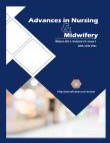The Association of Prenatal Depression and Body Mass Index (BMI) in Pregnant Women Referred to Health Centers in Qom
Author(s):
Article Type:
Research/Original Article (دارای رتبه معتبر)
Abstract:
Introduction
Pregnancy is a period during which women experience physical and psychological changes. The considerable changes can be found in their bodies and weights and they are quickly exposed to being overweight and obesity. On the other hand, few studies have assessed the association of depression with body mass index (BMI). This study explored whether depression and BMI affect each other in pregnancy. It aimed to investigate the correlation between prenatal depression and BMI in pregnant women in Qom.
Methods
This was a descriptive-correlational study conducted on pregnant women referred to health centers in 2016. Participants were selected using multi-stage cluster sampling. Samples of 236 pregnant women were divided into two groups: the second (14-28 weeks) and third (28-40 weeks) trimesters of pregnancy. Height and weight were measured to determine the initial BMI as well as BMI during pregnancy. Demographic information was collected from demographic and obstetric forms. Depression was measured using the Beck Depression Inventory (BDI-II). Data were analyzed using SPSS software and descriptive statistics, t-test, ANOVA, regression analysis and Pearson’s correlation coefficient, significant at P < 0.05.
Results
The results showed BMI in the second trimester to be 48.3% in the normal range, 16.1% overweight, and 30.5% obese. In the third trimester, BMI was 16.9% in the normal range, 34.4% overweight, and 46.6% obese. The rate of depression was 19.5% in the second trimester and 17.8% in the third trimester. Pearson’s correlation test showed that the association between prenatal depression and BMI did not exist in the second trimester (P = 0.499). In the third trimester, there was a significant negative correlation (P = 0.024). Based on regression analysis, among the factors related to BMI (depression, number of family members, gravidity, number of living children, parity, mother’s age, unwanted pregnancy by father, unwanted pregnancy by mother), depression and were are the only predictive factors strongly associated with BMI (P = 0.002 and P = 0.028, respectively).
Conclusions
In our study, there was an inverse correlation between depression and BMI of pregnant women, so that with increase in depression, BMI decreased. According to the different results of the research, further studies should be carried out regarding the effect of depression on BMI in order to be able to provide further assistance to pregnant women.Keywords:
Language:
English
Published:
Advances in Nursing & Midwifery, Volume:27 Issue: 2, Summer 2018
Pages:
20 to 26
magiran.com/p2009585
دانلود و مطالعه متن این مقاله با یکی از روشهای زیر امکان پذیر است:
اشتراک شخصی
با عضویت و پرداخت آنلاین حق اشتراک یکساله به مبلغ 1,390,000ريال میتوانید 70 عنوان مطلب دانلود کنید!
اشتراک سازمانی
به کتابخانه دانشگاه یا محل کار خود پیشنهاد کنید تا اشتراک سازمانی این پایگاه را برای دسترسی نامحدود همه کاربران به متن مطالب تهیه نمایند!
توجه!
- حق عضویت دریافتی صرف حمایت از نشریات عضو و نگهداری، تکمیل و توسعه مگیران میشود.
- پرداخت حق اشتراک و دانلود مقالات اجازه بازنشر آن در سایر رسانههای چاپی و دیجیتال را به کاربر نمیدهد.
In order to view content subscription is required
Personal subscription
Subscribe magiran.com for 70 € euros via PayPal and download 70 articles during a year.
Organization subscription
Please contact us to subscribe your university or library for unlimited access!


